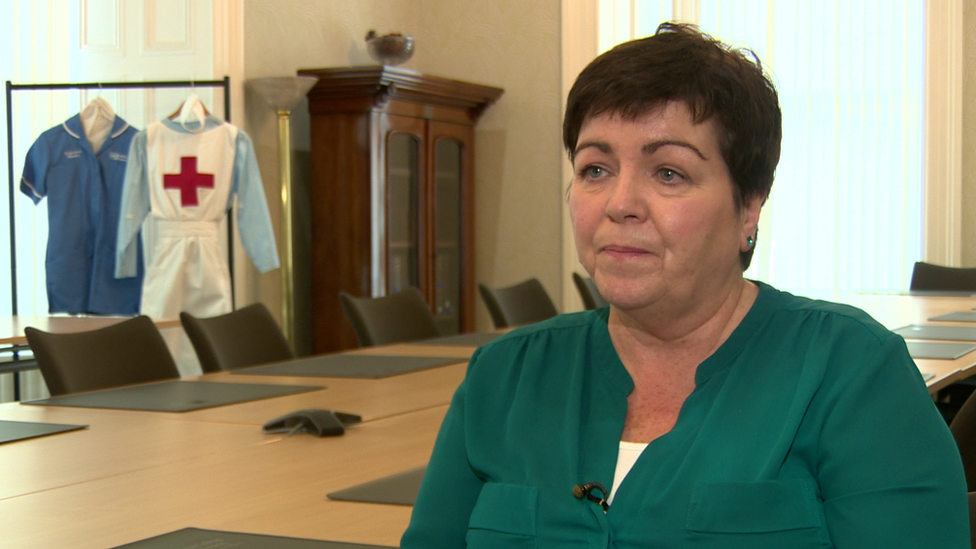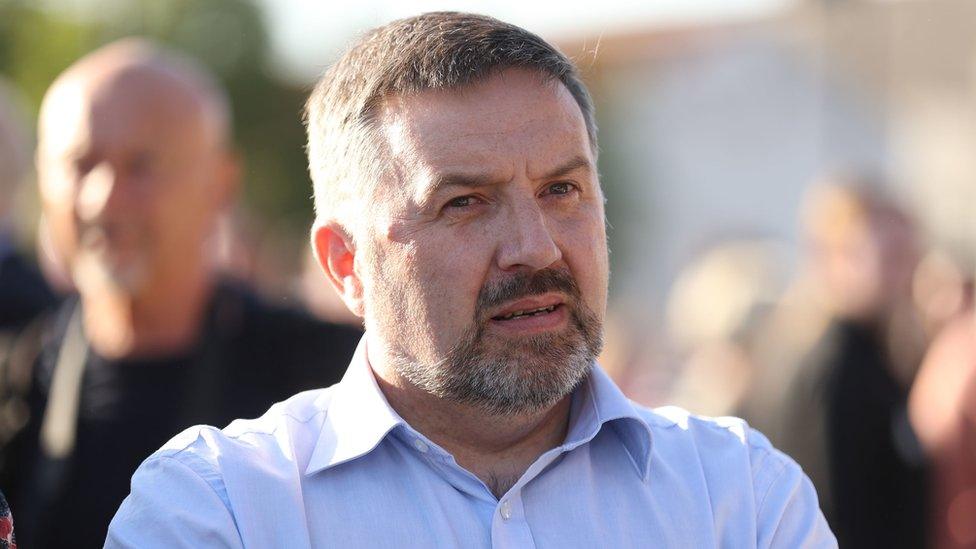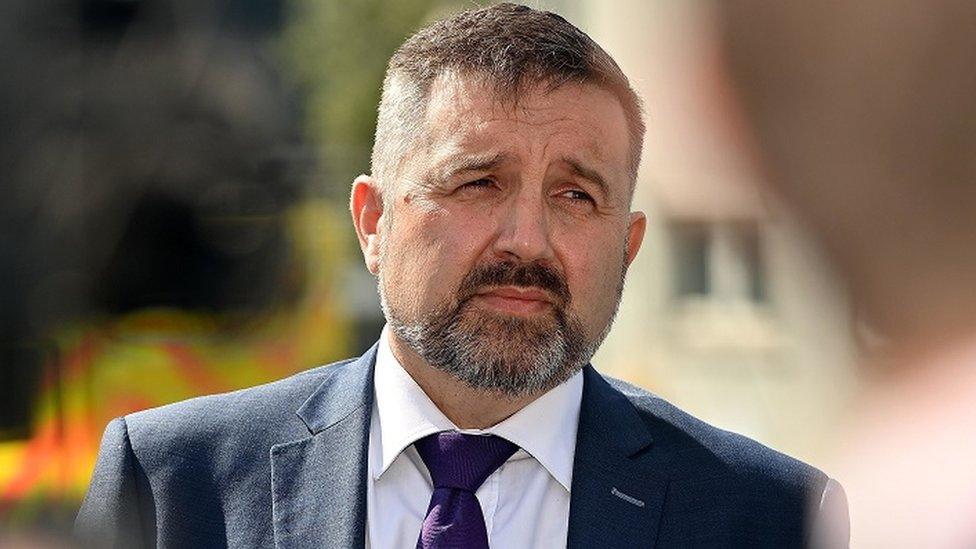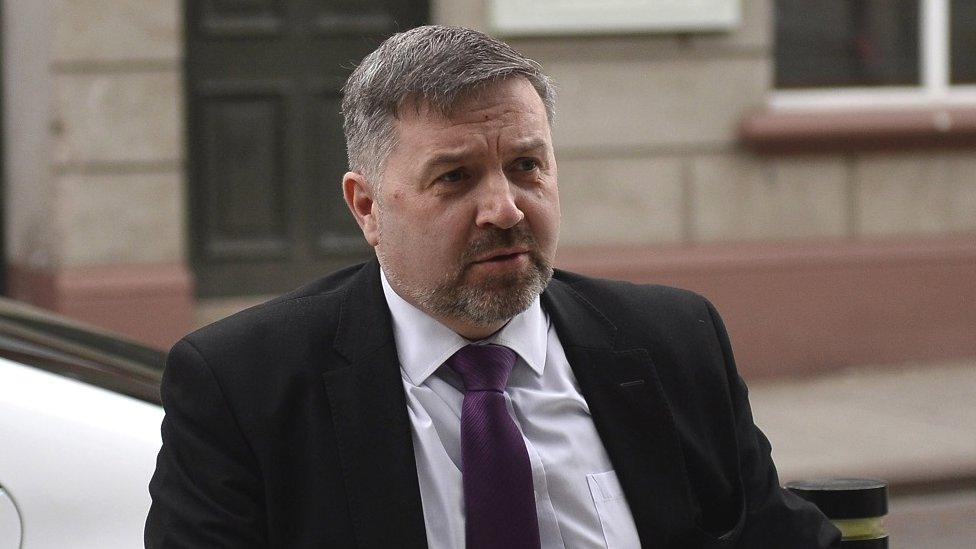Student nurse places announcement criticised by union
- Published

The Royal College of Nursing described the announcement as "short-sighted and incomprehensible"
The Royal College of Nursing (RCN) has described the announcement of nursing training places in Northern Ireland as "short-sighted and incomprehensible".
Details of health service education and training places for this year have been announced by the Department of Health which are staying at last year's level.
In 2020-2021 nurse student places were increased by 300 to 1,325 and stayed at that level the following year.
However, last year the number of places returned to 1,025.
The health minister Robin Swann said he had hoped to announce an overall increase in places but "intensifying budgetary pressures have made that unachievable."
'Going backwards'

Rita Devlin said that the move is "going backwards"
Rita Devlin, the executive director of RCN Northern Ireland, said that the move is "going backwards" when the health service needs more nurses to cope with rising demand.
"For years, Northern Ireland suffered cuts in student nursing places which has led to thousands of nursing vacancies over the past number of years.
"Although we achieved an increase in places in 2020, we are now seeing a reduction in numbers for the second year in a row despite professional advice that the need has remained around 1300", Ms Devlin said.
According to the Department of Health, the level of pre-registration education places will be the same as last year in Nursing and Midwifery (1,025), Allied Health Professionals (335) and Social Work (285).
The department said that "significant progress" had been made in recent years to increase the local workforce and the hope had been to increase it this year to "underpin" the ongoing transformation of health and social care, but the department said that was "not the case".

Robin Swann said he would continue to make the case for more funding
Robin Swann said he will continue to strongly make the case for greater funding for health and social care and that he will be seeking Executive transformation monies and cross-departmental support for investment in training.
The minister said between March 2018 and December 2023 there was a 15.7% increase in whole time equivalent staff in posts.
Rita Devlin said that the RCN has warned for years about the dangers of cutting the number of nurses that are trained locally and the "damage that does to patient care".
"We are over reliant on internationally educated nurses who are less likely to stay for long periods of time. Not only do we have shortages of nursing staff in NI but there is a worldwide shortage of nurses which adds further pressure when trying to recruit and retain a stable workforce, " Ms Devlin said.
The RCN said that as nurses they understand budget constraints.
But they said storing up problems for the future is "incomprehensible" when those problems are expensive to fix if reliant on nurses from other countries and agency staff .
Ramifications beyond education
Meanwhile, the Chartered Society of Physiotherapy has said the lack of increase in undergraduate training places "threatens Northern Ireland's health care workforce sustainability.
The society said the move has "critical implications" for the long term workforce including the "inevitable exodus" of aspiring healthcare professionals seeking education elsewhere.
Claire Ronald, Senior Negotiating Officer for the Chartered Society of Physiotherapy, said: "The ramifications of this decision extend far beyond the educational realm.
"With fewer local students pursuing careers in vital healthcare disciplines, Northern Ireland faces a shortage of qualified professionals to meet the demands of its healthcare sector.
"This shortage will undoubtedly have a profound impact on the delivery of healthcare services, affecting patient care, access to treatments, and the overall efficiency of the healthcare system."
- Published25 April 2024

- Published26 April 2024

- Published15 May 2023
